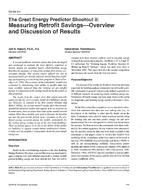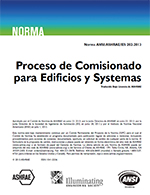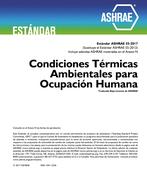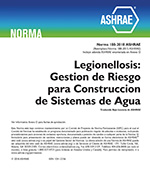Description
Reports on a second predictor shootout contest to evaluate the most effective empirical or inverse models for modelling hourly whole-building energy baselines for measuring savings from energy conservation retrofits. States the results show that neural networks again provide the most accurate model of a building’s energy use and that cleverly assembled statistical models also appear to be as accurate or in some cases more accurate, than some of the neural network entries. When the models were use to forecast the baseline use into the post-retrofit period, large variations in the predicted savings occurred among the models. Discusses the reasons.
KEYWORDS: year 1996, Energy conservation, buildings, modernising, calculating, comparing, computer programs, accuracy, USA
Citation: Symposium, ASHRAE Trans. 1996, Vol.102, Part 2
Product Details
- Published:
- 1996
- File Size:
- 1 file , 2.6 MB
- Product Code(s):
- D-16600




